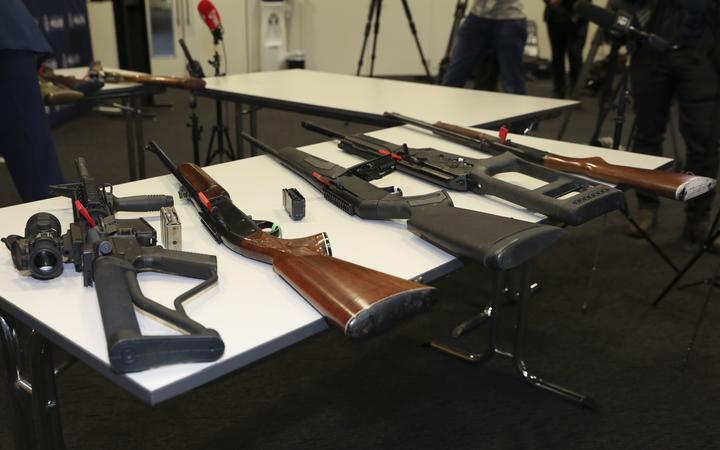Denis Prager gives some thoughts on the latest mass shooting.
This past weekend, Americans learned of another mass shooting, this time by an employee who decided to murder as many of the people he had worked with for years as possible. As of this writing, the murder toll is 12 people. Every American asks why. What was the killer’s motive? When we read there is “no known motive,” we are frustrated. Human beings want to make sense of life, especially of evil.
This is because we erroneously think that if we can find the motive, we can prevent it happening again.
Liberals (in this regard, liberals’ views are essentially as the same as leftists’) are virtually united in ascribing these shootings to guns. Just this past weekend, in a speech in Brazil, former President Barack Obama told an audience: “Our gun laws in the United States don’t make much sense. Anybody can buy any weapon any time — without much, if any, regulation. They can buy (guns) over the internet. They can buy machine guns.”
Guns are the easy target.
[…]Yet, America had plenty of guns when its mass murder rate was much lower. Grant Duwe, a Ph.D. in criminology and director of research and evaluation at the Minnesota Department of Corrections, gathered data going back 100 years in his 2007 book, Mass Murder in the United States: A History.
Duwe’s data reveal: In the 20th century, every decade before the 1970s had fewer than 10 mass public shootings. In the 1950s, for example, there was one mass shooting. And then a steep rise began. In the 1960s, there were six mass shootings. In the 1970s, the number rose to 13. In the 1980s, the number increased 2 1/2 times, to 32. And it rose again in the 1990s, to 42.
As for this century, The New York Times reported in 2014 that, according to the FBI, “Mass shootings have risen drastically in the past half-dozen years.” Given the same ubiquity of guns, wouldn’t the most productive question be what, if anything, has changed since the 1960s and ’70s? Of course it would. And a great deal has changed. America is much more ethnically diverse, much less religious. Boys have far fewer male role models in their lives. Fewer men marry, and normal boy behavior is largely held in contempt by their feminist teachers, principals and therapists. Do any or all of those factors matter more than the availability of guns?
[…] Regarding ethnic diversity, the countries that not only have the fewest mass murders but the lowest homicide rates as well are the least ethnically diverse — such as Japan and nearly all European countries. So, too, the American states that have homicide rates as low as Western European countries are the least ethnically and racially diverse (the four lowest are New Hampshire, North Dakota, Maine and Idaho). Now, America, being the most ethnically and racially diverse country in the world, could still have low homicide rates if a) Americans were Americanized, but the left has hyphenated — Balkanized, if you will — Americans, and b) most black males grew up with fathers.
Identity politics and victimhood.
[…] Regarding boys’ need for fathers, in 2008, then-Sen. Obama told an audience: “Children who grow up without a father are five times more likely to live in poverty and commit crime; nine times more likely to drop out of schools; and 20 times more likely to end up in prison.”
The absence of a father figure cannot be overstated.
[…] Yet, the Times has published columns and “studies” showing how relatively unimportant fathers are, and more and more educated women believe this dangerous nonsense.
[…] Finally, since the 1960s, we have been living in a culture of grievance. Whereas in the past people generally understood that life is hard and/or they have to work on themselves to improve their lives, for half a century, the left has drummed into Americans’ minds the belief that their difficulties are caused by American society — in particular, its sexism, racism and patriarchy. And the more aggrieved people are the more dulled their consciences.
When you don’t ask intelligent questions, you cannot come up with intelligent answers. So, then, with regard to murder in America, until Americans stop allowing the left to ask the questions, we will have no intelligent answers.
frontpagemag
I know from personal experience how huge a disadvantage it is to grow up without a stable father figure. It is much more of a disadvantage than race, gender or other such nonsense. It may be politically correct to say that women can do anything but children need their fathers.
So what’s the answer? How do you prevent mass shootings? A factor that’s not mentioned is a feeling of disenfranchisement, whether real or imagined. More stable families, and less victimhood, will certainly prevent people from being disenfranchised.
Enacting tougher gun laws is a Band-Aid solution. The argument goes that if the Christchurch shooter had not had access to the particular gun he used, for example, fewer people would have died. But even if that was true, the shooting still would have happened. Or maybe he would have used a home-made bomb. Who knows?
The answer I believe, as Prager implies, is to try to ensure, as far as possible, that we live in a society that values family stability, and that rejects grievance and identity politics, so that the chance of someone growing up in an unstable family, with a sense of entitlement, feeling aggrieved and disenfranchised, becomes very slim.

